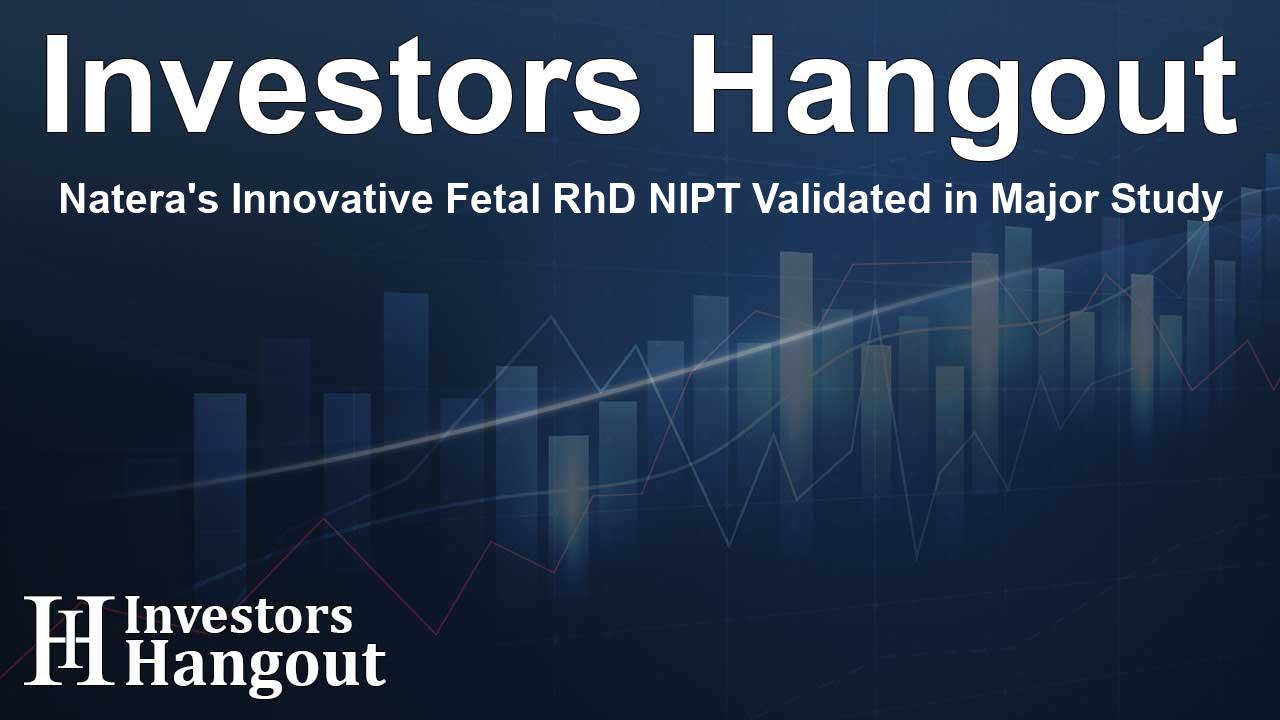Natera's Innovative Fetal RhD NIPT Validated in Major Study

Natera’s Clinical Validation Study for Fetal RhD Testing
Natera, Inc. (NASDAQ: NTRA), a leader in cell-free DNA and genetic testing, has published a comprehensive clinical validation study on its Fetal RhD noninvasive prenatal test (NIPT) in a reputable journal known for its focus on obstetrics and gynecology. This extensive study, conducted across a broad demographic, marks a milestone in the advancement of prenatal genetic testing.
Significance of the Fetal RhD NIPT
The groundbreaking study is the most significant clinical validation of a fetal RhD test to date in the United States, where the fetal RhD status was confirmed through newborn serology in 655 RhD-negative pregnant patients. The findings indicate that Natera's Fetal RhD NIPT is highly effective at determining fetal RhD status, thereby offering a vital tool for both patients and healthcare providers in managing the risks associated with RhD alloimmunization.
Key Highlights from the Study
Among the remarkable results of the study, the following highlights stand out:
- All 356 fetuses identified as RhD positive were accurately recognized, achieving a sensitivity rate of 100%.
- Out of the 297 RhD-negative fetuses, 295 were correctly identified as RhD negative, resulting in a specificity of 99.3%.
- The positive predictive value for the test was found to be 99.4%, while the negative predictive value exceeded 99.9%.
- The study incorporated a diverse mix of races and ethnicities reflective of the RhD-negative population in the U.S.
Understanding the Risks of RhD Alloimmunization
RhD alloimmunization occurs when an RhD-negative mother is pregnant with an RhD-positive fetus, which can lead to serious health issues such as hemolytic disease in newborns. Traditionally, this risk has been mitigated through Rho(D) immune globulin therapy (RhIg). Despite its efficacy, it is estimated that around 40% of RhD-negative patients receive this treatment unnecessarily. This context is particularly crucial, given recent shortages in RhIg supplies, highlighting the importance of accurate testing for better management of resources and patient safety.
Guidance from ACOG
Recent recommendations from the American College of Obstetricians and Gynecologists support the adoption of cell-free DNA (cfDNA) screening for fetal RhD testing to enhance prenatal care protocols.
Expert Opinions on the Study
According to Dr. Marisa Gilstrop Thompson, a board-certified physician specializing in Maternal Fetal Medicine, the results of this substantial clinical trial demonstrate exceptional performance in identifying fetal RhD status. She emphasizes that increasingly accurate fetal RhD testing could revolutionize the care provided to RhD-negative pregnant patients.
Natera's Commitment to Women's Health
Sheetal Parmar, Natera’s senior vice president of medical affairs for women’s health, expressed pride in Natera’s mission, stating that providing accurate and noninvasive tests is essential in preventing potential complications during pregnancies. This commitment aligns with Natera’s broader focus on women's health and the innovative products they offer.
Innovations in Prenatal Testing: The Panorama Test
The Fetal RhD NIPT is part of Natera's comprehensive women’s health product lineup, which also includes the Panorama test. Panorama is recognized as the leading noninvasive prenatal test in the U.S., capable of screening for severe genetic disorders as early as nine weeks into pregnancy. Utilizing a cutting-edge SNP-based technology, Panorama analyzes placental DNA through a simple blood draw from the mother, distinguishing it from maternal DNA to provide up-to-date assessments of potential risks for aneuploidies.
About Natera
Natera is at the forefront of cell-free DNA and genetic testing, with dedicated efforts in oncology, women’s health, and organ health. The company’s commitment is to integrate personalized genetic testing into standard healthcare practices, advocating for earlier and more targeted interventions that ultimately lead to healthier lives. With over 250 peer-reviewed publications validating the accuracy of its tests, Natera operates highly regulated laboratories certified under stringent clinical standards.
Frequently Asked Questions
What does the Fetal RhD NIPT test for?
The test determines the RhD status of a fetus in pregnant women who are RhD-negative, helping manage risks related to RhD alloimmunization.
How significant was Natera's validation study?
The study was significant as it is the largest of its kind in the U.S., confirming the test's high sensitivity and specificity rates.
What are the clinical implications of this test?
It helps in preventing unnecessary administration of RhIg treatment, thus conserving resources during a time of shortage.
What is Natera’s approach to women’s health?
Natera is focused on providing innovative, noninvasive testing solutions that improve care and outcomes for pregnant patients.
How can healthcare providers utilize the Fetal RhD NIPT?
Providers can integrate this test into routine prenatal care to effectively identify fetal RhD status and make informed clinical decisions.
About The Author
Contact Addison Perry privately here. Or send an email with ATTN: Addison Perry as the subject to contact@investorshangout.com.
About Investors Hangout
Investors Hangout is a leading online stock forum for financial discussion and learning, offering a wide range of free tools and resources. It draws in traders of all levels, who exchange market knowledge, investigate trading tactics, and keep an eye on industry developments in real time. Featuring financial articles, stock message boards, quotes, charts, company profiles, and live news updates. Through cooperative learning and a wealth of informational resources, it helps users from novices creating their first portfolios to experts honing their techniques. Join Investors Hangout today: https://investorshangout.com/
The content of this article is based on factual, publicly available information and does not represent legal, financial, or investment advice. Investors Hangout does not offer financial advice, and the author is not a licensed financial advisor. Consult a qualified advisor before making any financial or investment decisions based on this article. This article should not be considered advice to purchase, sell, or hold any securities or other investments. If any of the material provided here is inaccurate, please contact us for corrections.
